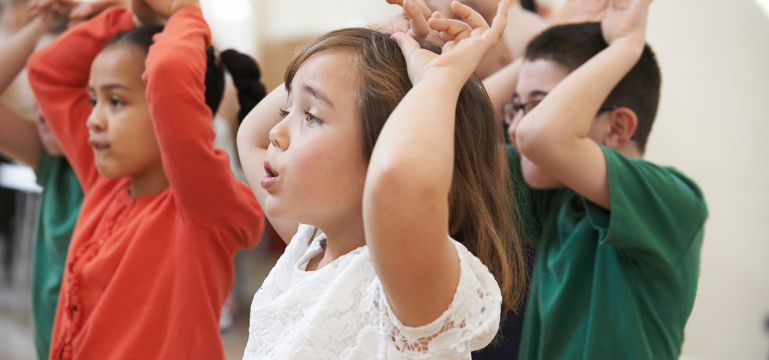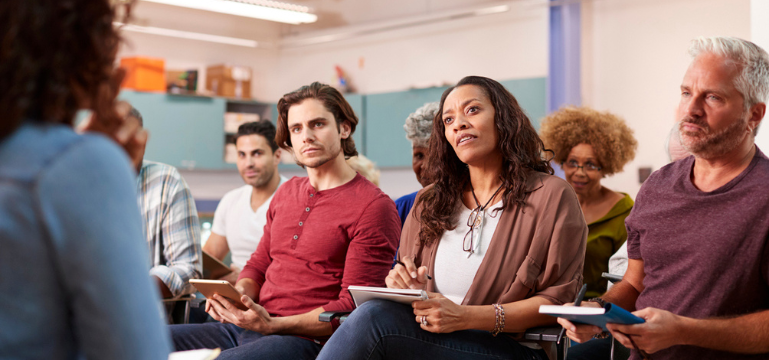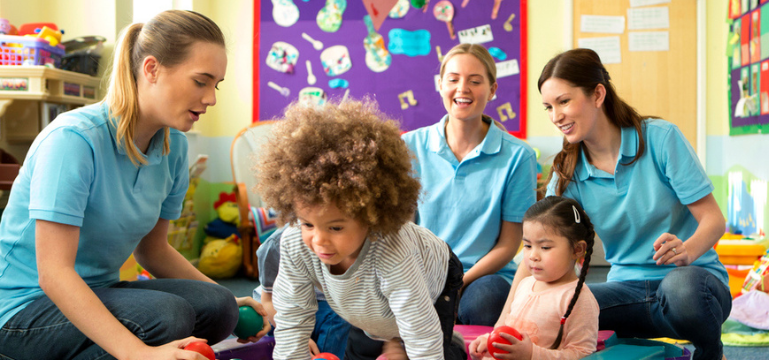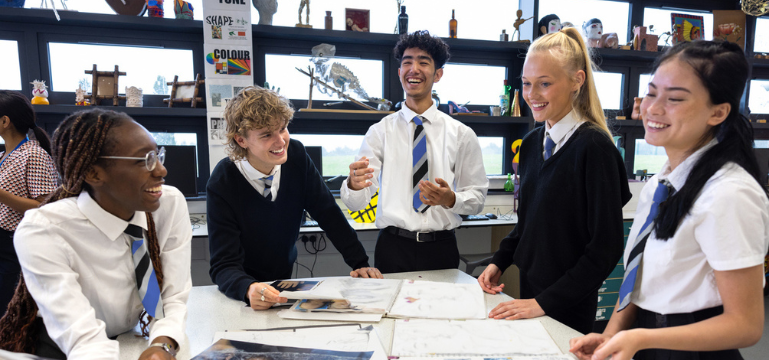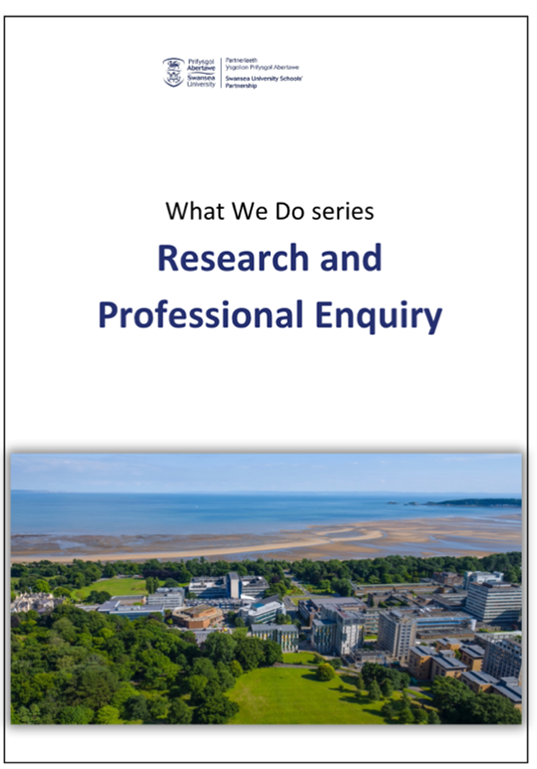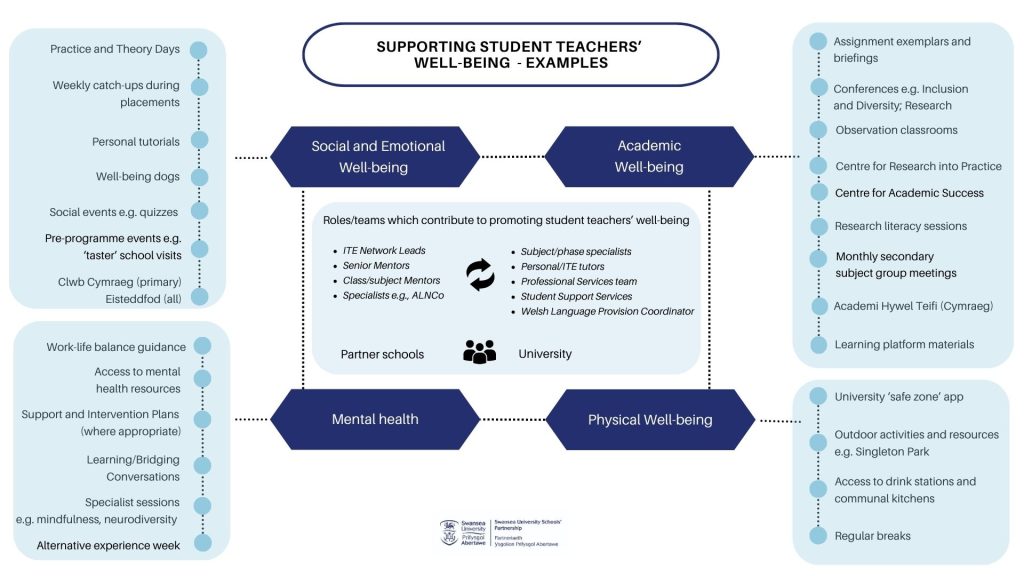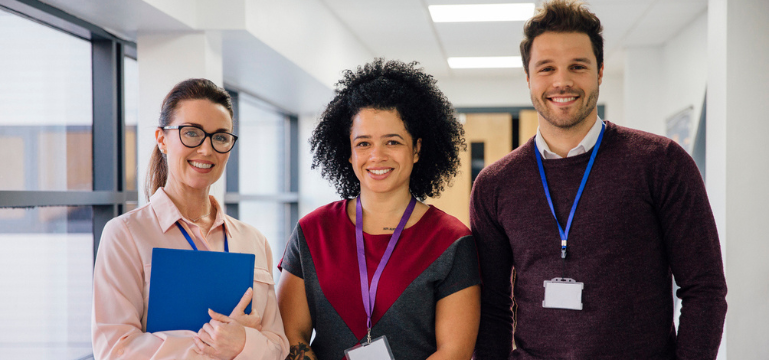
Information about the school
Fitzalan High School is a large English-medium secondary school serving pupils aged 11-18 in south Cardiff. The school serves a diverse community with a significant number of pupils from Black, Asian and Minority Ethnic backgrounds and over 70 different languages spoken. Around 37% of all pupils are eligible for free school meals. In September 2023, the school moved to a new state of the art building.
Context and background to the effective or innovative practice
Middle leadership teams are essential in schools, driving improvement, guiding staff, and securing the best outcomes for pupils. They shape curriculum delivery, drive progress, and cultivate a positive school culture. Their ability to mentor colleagues, implement change, and address challenges ensures high standards and continuous development.
In 2017, Estyn recognised that Fitzalan’s middle leadership team had well-defined roles and a strong understanding of their areas’ strengths and development needs. However, they sometimes overestimated the quality of teaching, and while improvement planning was generally effective, some success criteria lacked precision and a clear focus on pupil outcomes.
To strengthen middle leadership and ensure it continued to drive whole-school progress, Fitzalan focused on:
- Professional learning for middle leaders to develop the necessary leadership skills and knowledge for leading improvement.
- Fitzalan-specific initiatives aimed at:
a. Enhancing middle leaders’ ability to evaluate teaching quality and pupil progress with accuracy and rigour.
b. Strengthening their capacity to assess the impact of provision in their areas of responsibility.
c. Maintaining strong accountability while fostering a culture where collaborative problem-solving is encouraged.
At Fitzalan, performance review plays a crucial role in shaping professional learning for middle leaders. The school uses a structured appraisal system that not only evaluates leadership effectiveness but also identifies areas for targeted development. Through regular performance reviews, middle leaders receive feedback on their ability to lead teams, evaluate teaching quality, and drive improvements in pupil outcomes.
Findings from performance management discussions directly inform professional learning priorities. For instance, if middle leaders require further support in using data to assess teaching impact, targeted training sessions are introduced. Similarly, if appraisal outcomes highlight the need for improved coaching skills among middle leaders, mentoring and coaching workshops are embedded into professional learning programmes. This approach ensures that leadership development is closely aligned with individual and whole-school improvement needs.
Description of the nature of the strategy or activity
1) Middle Leadership Professional Learning
Alongside whole-school professional learning, middle leaders (and aspiring middle leaders) participate in targeted training to enhance their leadership skills. This training is delivered by both internal and external experts. For example, an external facilitator ran a series of workshops on managing teams, covering topics such as leadership self-awareness, coaching and mentoring, and conflict resolution. Other sessions included effective budget management and strategic planning.
Fitzalan also developed a bespoke pathway for professional learning, which includes:
- The Moving to Excellence programme, designed to strengthen classroom practice.
- The ARWAIN programme, which explores the role of a middle leader and provides a foundation for leadership progression.
- The INSIGHT programme, aimed at developing coaching and mentoring skills for current middle leaders preparing for more senior roles.
This structured approach ensures that all aspiring and current middle leaders have a clear understanding of expectations and the necessary support to develop their leadership skills.
2) Fitzalan-specific changes
a. Enhancing middle leaders’ ability to evaluate teaching and pupil progress
To ensure that middle leaders produce rigorous, accurate evaluations, Fitzalan developed a shared understanding of excellence and a common language for describing teaching quality. This involved breaking down key areas into specific components and demonstrating how these develop along a continuum. For example, the Teaching and Learning Focus Group created the Fitzalan Fundamentals of Great Teaching, a research-based framework outlining the essential elements of excellent practice. This framework became the foundation for discussions about teaching quality. Another initiative focused on mapping out skill progression, providing greater clarity on how pupils develop key competencies over time.
To support this, middle leaders received training on:
- Selecting robust samples of evidence.
- Using triangulation to ensure balanced evaluations.
- Writing evaluative statements that focus on impact rather than actions.
Middle leaders were also provided with models of best practice to guide them in conducting high-quality evaluations within their areas of responsibility.
b. Strengthening middle leaders’ ability to assess the impact of provision
A key shift in Fitzalan’s approach was moving from evaluating provision based on actions taken to assessing its actual impact on pupil learning. Instead of focusing on what teachers were doing, discussions centred on what pupils knew, understood, and could do as a result of the provision.
For example, rather than stating, “We provide multiple opportunities for pupils to practise literacy,” a more meaningful, impact-driven statement would be: “Nearly all pupils can spell key words and subject-specific terms accurately. However, a minority struggle with Tier 2 vocabulary, affecting their ability to apply more sophisticated language in extended writing. Targeted interventions are needed to address this gap.”
To embed this approach, middle leaders receive training on:
- Analysing assessment data.
- Scrutinising pupil work effectively.
- Using qualitative and quantitative evidence to draw accurate conclusions about teaching and learning.
- Writing clear, evidence-driven evaluations that identify strengths, areas for improvement, and next steps.
c. Maintaining strong accountability while fostering a collaborative culture
Middle leaders participate in bi-weekly small-group meetings with structured agendas set at the start of the academic year. These meetings focus on key areas such as:
- Reviewing pupil progress after assessment points.
- Evaluating the effectiveness of interventions.
- Addressing emerging priorities (e.g. assessing the impact of a new behaviour system).
The small-group format allows for meaningful discussions, best practice sharing, and collaborative problem-solving. These meetings also help identify middle leaders who may need further support, allowing for timely intervention and tailored development plans. Senior leaders ensure that these meetings remain constructive and developmental rather than solely focused on accountability. There are systems and processes to monitor and evaluate the impact of support, to ensure that high standards are maintained.
What impact has this work had on provision and learners’ standards?
This work has had a significant impact on both provision and pupil outcomes. By shifting discussions from what teachers are doing to what pupils are learning, middle leaders have gained a sharper understanding of the impact of their work. This has led to more precise and effective improvement strategies that directly address areas of need.
The focus on evidence-based evaluation has resulted in a more rigorous and analytical approach to assessing teaching and learning. Middle leaders are now better equipped to identify strengths, diagnose weaknesses, and implement targeted interventions that drive improvement. The impact of this approach has been seen in:
- More accurate and reliable evaluations of teaching quality.
- Greater consistency in standards across departments.
- Continued collaboration and openness to professional learning.
The culture of accountability remains strong, and is balanced with support and an ethos of shared responsibility. Staff feel empowered to take ownership of their development, leading to higher levels of engagement in professional learning and ultimately, better outcomes for pupils. By embedding professional learning within the school’s improvement cycle, Fitzalan ensures that leadership at all levels remains a driving force in securing excellence.
